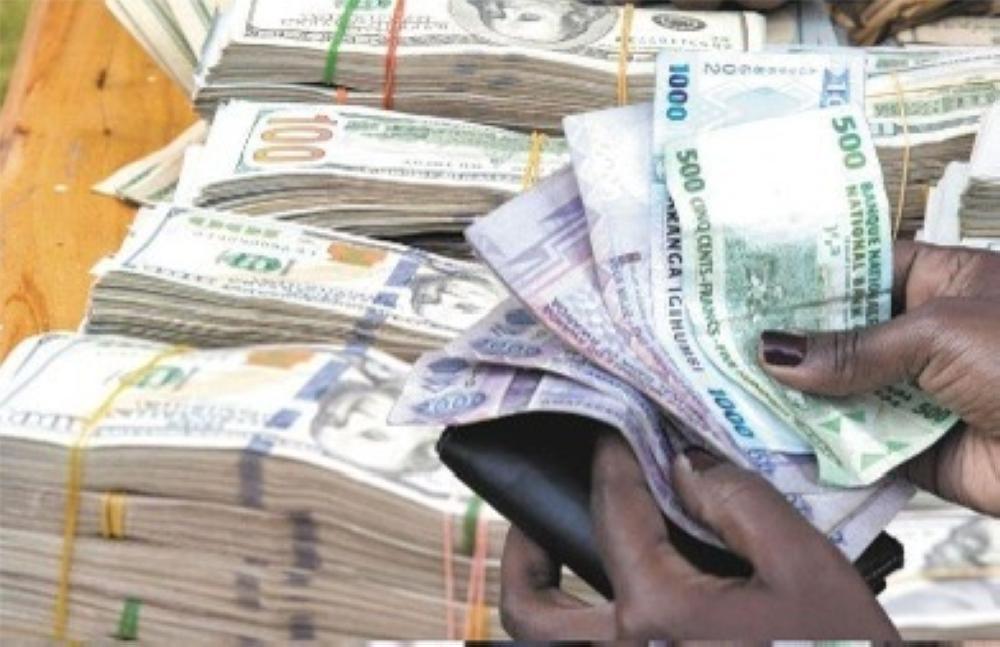Africa-Press – Rwanda. The National Bank of Rwanda, on September 17, issued a new directive clarifying who is permitted to receive payments in foreign currencies, including the US dollar, in Rwanda.
The 2025 directive governing persons authorised to transact in foreign currencies and the requirements for obtaining authorisation, identifies categories of natural persons and legal entities allowed to receive payments in foreign currencies for goods and services in Rwanda without prior approval from the central bank, due to the nature of their operations.
It also outlines the procedure and requirements for others seeking such authorisation.
The directive defines an authorised dealer as a person or entity permitted to conduct transactions in foreign currency due to the nature of their business or activity; and transaction in foreign currency as receiving payment in a foreign currency.
Persons deemed automatically authorised dealers:
As per the directive, the following persons/entities are automatically authorised to receive payments in foreign currencies, provided they comply with the terms of this directive:
– Real estate companies with valid investment certificates and approval from the Rwanda Development Board (RDB) to transact in foreign currency
– Tourism entities and travel agencies with valid tourism operating licenses from RDB
– Entities licensed by competent authority and operating under the Kigali International Financial Centre (KIFC) regime, as recommended by Rwanda Finance Limited
– Kigali International Arbitration Centre
– Mining operators dealing in mineral trading
– Aviation and related logistics service providers
– Air ticketing agencies
– Cross-border land and water transport and logistics service providers
– Duty-free shops
– Casinos
– International schools, universities, and higher learning institutions
– Suppliers or service providers to diplomatic missions, consulates, United Nations (UN) agencies, and international organisations accredited in Rwanda.
– Expatriates authorised to work in Rwanda, or any person employed or providing service to an entity that uses foreign currency sourced from outside Rwanda
– Suppliers or service providers to the expatriates and persons who receive or get income in foreign currency sourced from outside Rwanda.
– Any other person authorised by the Central Bank.
Elaborating on the rationale behind the new directive, the Governor of the National Bank of Rwanda, Soraya Hakuziyaremye, said that in May 2025, the central bank revised the regulations governing foreign currency usage in Rwanda.
This latest directive was issued after wide consultations with policymakers and the private sector, she pointed out.
She was speaking during the presentation of the Monetary Policy Committee and Financial Stability Statement on September 18, in Kigali.
The revision, she explained, was necessary following numerous complaints, especially from tenants being asked to pay rent in foreign currencies – despite the Rwandan Franc being the only legal tender.
“In our inspection, we had observed and found out that more than 700 contracts had been concluded in foreign currency from people who had no authorisation,” she said.
After consultations with private sector mainly, but also government institutions, including the Ministry of Trade and Industry, RDB, the Ministry of Finance and Economic Planning, as well as Rwanda Mines, Petroleum and Gas Board and Rwanda Finance Ltd, Hakuziyaremye stated, the central bank issued a directive that gives clarity on who, as a person or business, is allowed to transact in foreign currency because of the nature of their business.
She indicated that there is a wide array of sectors, due to the nature of their activities, which can and are allowed to transact in foreign currency under certain conditions.
“One example is the tourism sector, which was already covered in the previous directive [of 2023], but also looking at, for instance, the mining sector, where minerals are priced internationally in foreign currency,” she said.
“We also looked at, for instance, international schools, but also our universities that are accommodating more and more and attracting international students; we looked at members of Kigali International Financial Center, as well as members of Kigali International Arbitration Center,” she said.
The guiding principle, Hakuziyaremye observed, is that no one residing or being a citizen of Rwanda should be forced [to pay in foreign currencies] or denied to pay in local currency.
“So, we believe that these behavioural malpractices that we had seen in the market will be alleviated through the revised regulation and directive,” she said.
She underscored that the directive respects Rwanda’s liberalised financial environment and assures foreign investors that account liberalisation remains intact.
“And this directive and regulation are followed up by an extensive awareness campaign and engagement with private sector, so that we monitor how implementation of this new regulation is being conducted, and be able to also adjust it if there are any sectors that we may have not seen, or that will justify also the authorisation to transact in foreign currency.”
Requirements and authorisation process for persons or entities that are not automatically permitted
Any person or business not listed among those automatically permitted to receive payment in foreign currencies must apply for authorisation via the central bank’s non-bank financial institutions department, through https://ecorrespondence.bnr.rw.
Applications must include a letter explaining why the nature of their business requires transacting in foreign currencies; evidence of actual or expected foreign currency inflows/outflows; proof of foreign currency accounts with licensed intermediaries; a certified copy of registration and incorporation documents (if applicable); a valid tax clearance certificate; and copies of any agreements denominated in foreign currency (if applicable).
The requirements also include financial statements of the previous two years, reflecting foreign currency transactions (if applicable); a recommendation letter from RDB (where applicable); and any additional documents as may be requested by the central bank.
Application review and the granting of authorisation
Within five working days, the central bank has to issue an acknowledgement notice indicating whether the application is complete or specifying any identified deficiencies.
The central bank will assess the application for completeness, authenticity, and compliance.
The central bank has to issue a decision whether to grant or deny authorisation within 20 working days of receiving a complete application and shall notify the applicant in writing.
If denied, reasons will be provided in writing.
If the decision is delayed, the central bank must provide a written explanation and may extend the review period by up to 10 additional working days. If no decision is made within the extended period, the application is deemed approved.
For More News And Analysis About Rwanda Follow Africa-Press






